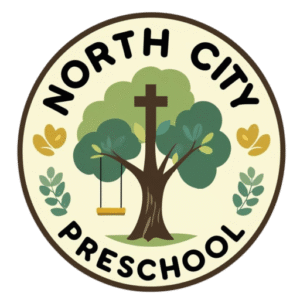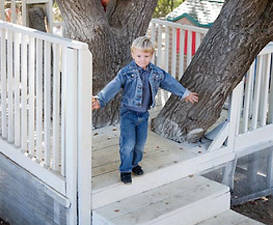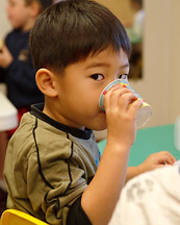Why choose our school?
There is a lot of buzz around the new UTK program through the public school system. With that buzz comes questions, great questions!
For example,
What is UTK?
UTK stands for Universal Transitional Kindergarten. Transitional Kindergarten (before the universe got involved) is a concept developed back in 2012. Transitional Kindergarten (TK) allowed a place in the public school system for children who turned five just a little too late to go to kindergarten. The requirement being that TK children would turn five between September 1st and December 31st of the current school year.
The Universal part has come more recently, in 2021/2022, and changed the concept. UTK is a free program in the public school system for children who turn four years old by September 1st of the school year.
It is often promoted as the “new beginning grade level” and the “first year of two year Kindergarten”. The implementation of UTK programs differ between schools and school district. The theory for all UTK programs is that beginning formal, institutional education at younger ages, will be better children academically.
Isn’t the new UTK what preschools have called “Pre-K” for years?
A really big YES, and then a big NO as well!
Yes, preparing children to go off to kindergarten has been the dedicated work of “Pre-K Teachers” in preschools across this land for many, many decades. Preschool teachers are educated in the development and learning styles of preschool age children from first stages of life through the fantastic five- year-old stage!
A good preschool program creates a learning environment that corresponds to a child’s age, developmental stage, learning language, emphasizing social and emotional well-being. Quality Pre-K programs are designed to enrich children’s lives and set the stage for all future learning by providing holistic learning and growth opportunities for each child’s unique style and interest.
Learning “academics”, such as ABC’s and 123’s, is the easy part of teaching preschool children. Building relationships with preschool children so that they enjoy school, are eager to learn new things, and make real connections through positive experiences is the most valuable work of teachers!
The emphasizes of our Pre-K program is to ready children for their next school steps by…..
* Creating positive social interactions and helping them learn to regulate when things don’t go their way
* Afford them space and time to problem solve and build critical thinking skills
* Offer support, patience, and kindness as they learn to regulate big emotions
* Present ample activities that boost their confidence, celebrate their uniqueness and enhance their self esteem
- Build a sense of community and cooperation through group and family activities
* Enhance and develop strong verbal language skills, listening and literacy skills
* Develop spatial awareness along with large and small muscle development, that are paramount for writing and reading
* Give attention to the value of self-help and real world skills
- Strengthening faith, while emphasizing strong character building
Mastery of these skills provide children with the foundational blocks for healthy growth and all future learning! Providing purposeful and intentional activities that celebrate children’s natural desire to play are key for success in literacy, numeracy, scientific reasoning and more!
A preschooler’s mind works much differently than an elementary age child. Preschool age children are defined as two to five years old because of crucial brain developmental happening up to five years of age. It is during these years that children grow in executive function, master strong language skills, develop sensory awareness, strengthen their physicality, engage in healthy social and emotional relationships. Necessary academic growth becomes instinctive in preschool children when their developmental needs are met.
This is where the majority of Pre-K programs differ from public UTK. UTK is considered the new grade level for elementary education. The focus is on structured academics. The goal is to jump start academic learning with two years of Kindergarten, It is worth noting that even though UTK is now on the scene, Kindergarten is still, not yet required in the state of California.
Standards, goals and requirements for school may change over time. It is important to remember that the way children learn is innate and has not changed over time. For this reason, and so many others, it is invaluable to start a child’s education journey in a place that nurtures and celebrates their unique and wonderful way of learning. Unbalanced focus on academics for a preschooler, without time for fundamental formative growth, can minimize development and age-appropriate learning.
Some more considerations between our Pre-K and public UTK
Our Pre-K program
* Smaller class sizes – Fully qualified teacher, experienced in Early Childhood Education with between 10 and 12 students. Every child is an original, with unique personalities and learning languages. Smaller classes allow our teachers to observe, assess, and implement individual care and teaching to each child.
* Half day programs, with options for afterschool activities. Our classes meet 9:00 a.m. to 12:30, and children are offered a rest period as needed. Engaging and fun afternoon programs are available on campus.
* Structured with the family in mind! Our programs are familiar, friendly and family orientated. We believe you can’t care for children, without caring for their family.
* Focus on children as individuals, with unique needs, family dynamics, and learning languages. Emphasize all areas of development, language, academic, physical, social, and emotional.
* Curriculum and philosophy that is proven through years of practice and real world experience.
* Faith based, we are a Christian school that strives to demonstrate the love, hope and grace of God to our children and families every day.
UTK
* Larger classes – 20 children with one Early Childhood teacher, and one elementary trained teacher.
* Full day program – 8:00 or 8:30 to 2:30 or 3:30
* Curriculum focus on academics, mainly literacy and math
* Placement is not guaranteed in your geographical school – children may have to move to another school for the kindergarten.



